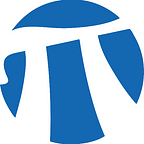Bringing Computational Learning to BC Schools
By Jimmy Fryers
The Callysto online platform is being used to improve the computational thinking skills of more and more elementary and high school kids across Canada. This effort is being spearheaded by one of the most prolific education leaders in British Columbia: Richard Hoshino.
The numbers are impressive: in just the last three months of 2018, Richard Hoshino visited 37 schools across BC, meeting over 200 teachers and 500 students. He also spoke to over 300 hundred people at the Northwest Mathematics Conference, and facilitated countless other interactions.
Richard Hoshino
Richard is a mathematics professor at Quest University in Squamish, BC. In 2017, he became the youngest-ever recipient of the Adrien Pouliot Award, a lifetime recognition for significant and sustained contributions to math education in Canada. He’s also the author of the Math Olympian, a highly-acclaimed semi-fictional story of an insecure teenager who pursues her dream of representing her country at the International Mathematical Olympiad.
Since 2018, Richard has been on sabbatical from Quest to spread the word about Callysto, a free online platform created by PIMS and Cybera, funded by the Government’s CanCode program, that’s bringing computational thinking skills to Canadian schools.
What is Callysto?
The goal of the Callysto program is to help young learners in grades 5–12 develop the computational thinking skills demanded by the workplace of the future.
This online learning platform is free to use and open to all, and gives teachers the ability to combine code, text, tables, interactive graphs, and slick graphics, without the need to download any software (as the video below demonstrates).
The mission of Cybera and PIMS is to increase the use of Callysto by teachers and students to inspire them to become confident technology explorers, innovators and problem solvers. Richard’s efforts in BC are an important part of helping them achieve that goal.
Spreading The Word
Given Richard’s limited time on sabbatical, and the huge task of visiting as many schools as possible to get teachers onboarded, he was kept extremely busy.
One of the main conferences he attended was the 57th Northwest Mathematics Conference in Whistler, BC, where he presented to over 300 event participants.
He spoke about how Callysto is enabling teachers to help students understand the concepts of coding, data science, and computational thinking, to become the next digital leaders of tomorrow, which resulted in a raft of inquiries.
For some teachers, learning the Python coding language that’s used to run the Callysto notebooks can be daunting. This is why freely available modules were developed to be ready to use, with the background code hidden. This allows teachers to easily incorporate new curriculum requirements into their class topics, such as real-world data science inspiring their students to think outside the box.
School Visits
Richard’s efforts were not just focused on teachers. He also visited many classrooms to demonstrate the power of the tool to students.
One such school visit was to Mulgrave — The International School of Vancouver, which prides itself on providing their students with varied and quality learning opportunities.
Richard has abundant energy and strives to get students actively thinking about problems and then working on them. Within minutes of the class starting, and after a brief explanation using the notebooks, the students first worked in pairs on a computational math problem using a whiteboard, and then explained their solutions to the group.
After the whiteboard session, the students were able to play a game with the Callysto notebook to prove their solutions and then increase the difficulty of the problem using the program.
The use of this technology in the classroom opens up new opportunities for educators and the teachers who attended Richard’s sessions were impressed by his work:
“The students really found the sessions engaging and inspiring” says Kyle Prior, a teacher at Mulgrave
“Our students are still talking about yesterday and have been inspired by your presentations” adds Michael Frewin, another teacher.
A list of open-source notebooks available on Callysto can be accessed here. By using these resources, which can be run on a standard web browser like Chrome, teachers are able to expand the breadth of computational learning in the classroom.
The last seven months have certainly been a marathon effort for Callysto’s Math Olympian, Richard Hoshino, but we think the future of BC computational-based education is better off because of his dedication.
